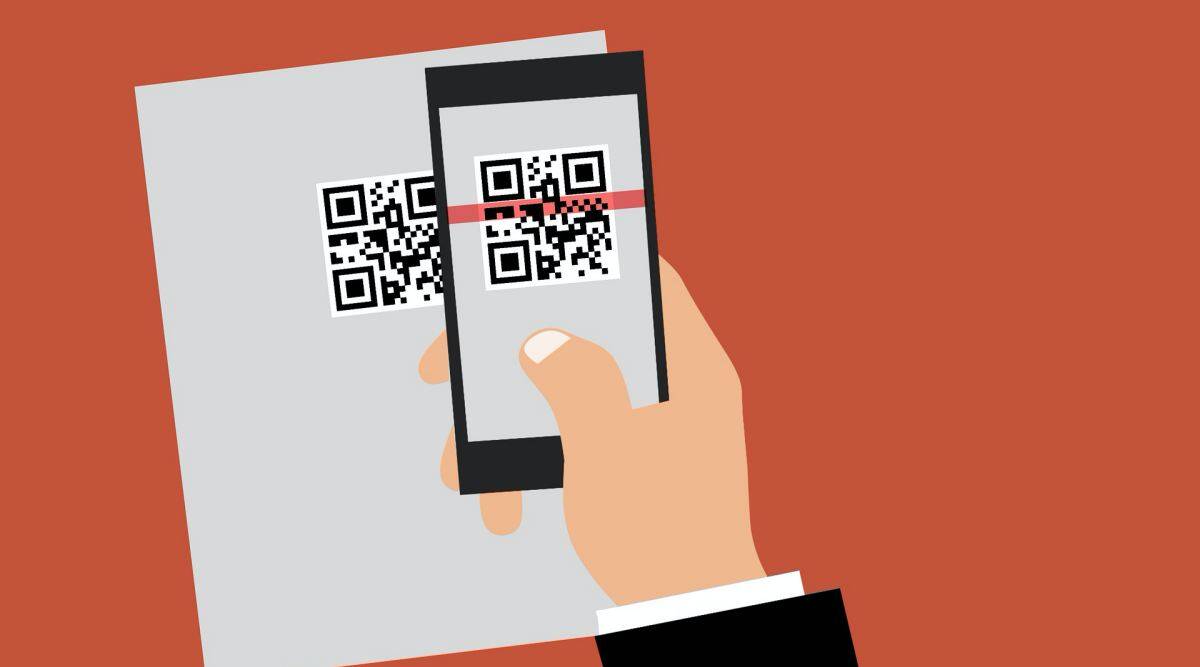In the country, it is relatively new to pay by scanning a quick response (QR) code. Wallet companies introduced the concept a few years back. It is now a common occurrence because of UPI (unified payment interface). However, it has now become a target for scammers, as they target gullible users in order to defraud them.

The 95,000 QR code fraud
An online scam victim lost Rs 95,000 after placing an advertisement on the global marketplace OLX for used furniture. GM Palya resident Brinda Desari (30) uploaded the pictures of her furniture to social media on January 7 along with her phone number, according to her complaint with the Byappanahalli police. One hour and forty-five minutes after presenting the ad, Deepak Kapoor, the owner of a military canteen, called and expressed interest in buying the furniture.
A few minutes later, Kapoor texted Brinda a QR code, telling her to scan it and enter her PIN to receive Rs.2. Brinda scanned, entered her PIN, and received Rs 2. Kapoor sent her another QR code to click on to make sure the money had been received. He said he was checking if it had worked. She began clicking QR codes that he sent her and lost Rs 95,000 as a result. Kapoor explained that technical problems led to the money disappearing from her account, and he assured her the money would be returned.
How to avoid QR code scams
It is more common for scammers to target sellers on online classifieds. We'll describe what it's like to sell old furniture online if you're a seller. An ad appears on a classifieds website. You may receive calls from fraudsters expressing interest. After a price is set, they will test whether your address is correct by transferring a token amount. You are more likely to trust them if they do this.
Once this is done, a QR code is sent to the seller. It is scanned by the seller in order for the remainder of the payment to be received. The ploy, however, is not so innocent. In such a scenario, the seller would end up sending the money to the scammer instead of receiving it.
Various methods can be used to misuse QR codes. A scammer, for instance, can replace merchant QR codes with their own. Fraudsters will receive payment when customers scan the codes instead of merchants.
QR codes cannot be read by humans. Therefore, it is crucial that you read the name of the receiver before making a payment. Receiving payment doesn't require a QR code either. Certainly, a scammer will ask you to do so.
Social engineering is also used by fraudsters. If they're rushing to close the deal, they may attempt to win your trust in different ways. Both of these things should be avoided. The smallest details matter when it comes to a QR code payment transaction. You should not proceed with a transaction if there are any suspicious circumstances. Using a QR code is only beneficial when you trust the merchant and know the person.
Tips to prevent fraud:
1. The first thing you should do if you receive a message asking for money is to check the number. In the event that one of your friends or acquaintances suddenly has a new number and asks you for money, you should be suspicious at the very least.
2. There are a lot of 'phishing' incidents taking place on WhatsApp. Any link that appears to be malicious should not be clicked on.
3. Your One Time Password (OTP), UPI pin, and other secret information should not be shared on WhatsApp. Never provide banking information if anyone asks you to and always contact your bank. There is a possibility of fraud here.
4. It is recommended that digital escrow platforms be used for payment. When making an online payment with Escrow, you do not share your financial information with anyone. There is a platform for escrow called Vouch.
How does digital escrow work?
In digital escrow, a third-party account holds the money deposited by the buyer until the seller fulfills the terms of the contract. The escrow company supervises the transacting parties.
In what ways does Digital Escrow prevent online fraud in India?
The Vouch Digital Escrow service ensures a smooth transfer of products and payments while enhancing trust between buyers and sellers. Customers will feel confident that they will be fairly compensated quickly, and that their order will be delivered as expected and on time. If you ever encounter a fraudster who asks you to scan a QR code or ask to get an OTP code or ask you to click on phishing links, you can simply decline and request that the transaction be completed through Vouch.
For all businesses in India, Vouch Digital Escrow utilizes a non-interest-bearing escrow account, and at every step of the process, you are kept informed. You can always count on Vouch's professionals during all steps of the transaction process to answer all your questions. Since all payments, shipping, delivery, and execution are carried out under the honest and watchful eyes of Vouch's professionals, there is no scope for deceit or fraud. Vouch makes business transactions transparent, straightforward, and convenient.
This is Fraud Story #76. Check back here for more fraud stories and scams that you can protect yourself from.
Safety is not just about protecting your credit or debit card number. It's about having control of your money till you've received the product or service you bought online!
Note: This is a good-faith initiative to educate the world about avoiding frauds like these. Do you have a fraud you would like to report? Please write to us at letstalk@iamvouched.com






